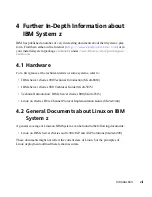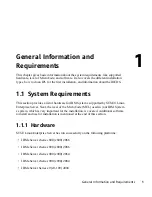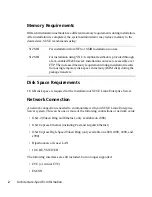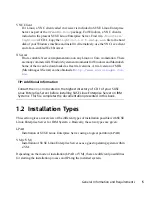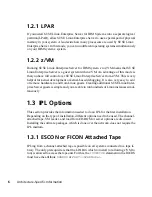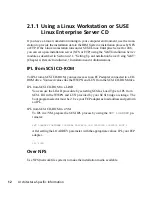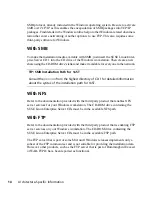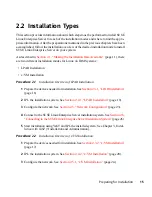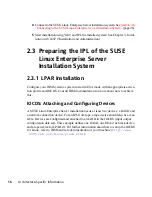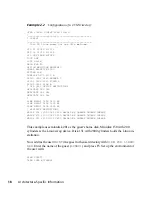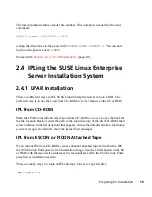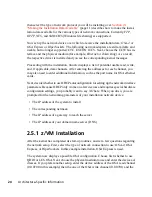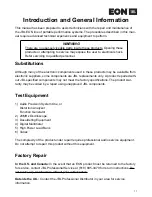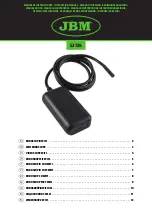
This example shows how to dedicate a DASD to one specific LPAR. This LPAR is
referred to as
LPAR1
.
Example 1.1
Dedicating DASD to One LPAR
CHPID PATH=FD,TYPE=DSD,SHARED
CNTLUNIT CUNUMBR=FD00,PATH=FD,UNITADD=((00,256)),UNIT=3990-2
IODEVICE ADDRESS=(FD03,1),CUNUMBR=FD00,UNIT=3390,PART=LPAR1
To share a DASD among LPARs, delete the
PART=LPAR1
part in the IOCDS definition.
This might be useful for high availability reasons or for sharing data among LPARs
read-only.
Several Linux systems can use the same network device if you share it among LPARs
or z/VM guests. This reduces the number of network devices that must be provided to
the Linux system. On the other hand, you might provide more than one network device
to one Linux system to make it more available in case one connection fails.
Network cards like OSA-Express can be used in two different modes. These modes are
known as QDIO and non-QDIO mode. Define these modes in the IOCDS by using the
TYPE
statement. QDIO mode is much faster than non-QDIO mode, but uses three device
addresses instead of two in non-QDIO. Consider the limited number of device addresses
when planning the setup of your IBM System z Linux environment.
Example 1.2
Sharing OSA Express Card among LPARs (non-qdio) on z900
CHPID PATH=(FE),SHARED,PARTITION=((LPAR1,LPAR2)),TYPE=OSE
CNTLUNIT CUNUMBR=FE00,PATH=(FE),UNIT=OSA
IODEVICE ADDRESS=(FE00,016),CUNUMBR=(FE00),UNIT=OSA
IODEVICE ADDRESS=(FEFE,001),CUNUMBR=(FE00),UNIT=OSAD
Example 1.3
Sharing OSA Express Card among LPARs (qdio) on z900
CHPID PATH=(FE),SHARED,PARTITION=((LPAR1,LPAR2)),TYPE=OSD
CNTLUNIT CUNUMBER=FE00,PATH=(FE),UNIT=OSA
IODEVICE ADDRESS=(FE00,016),CUNUMBR=(FE00),UNIT=OSA
IODEVICE ADDRESS=(FEFE,001),CUNUMBR=(FE00),UNIT=OSAD
General Information and Requirements
9



